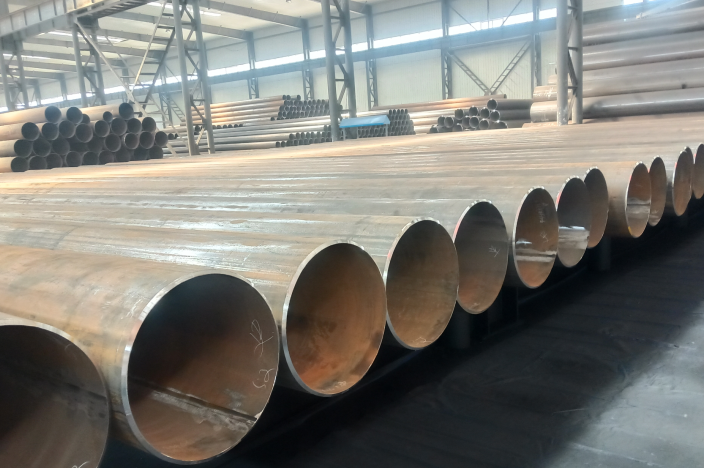
Mechanical Properties and Strength Analysis of LSAW Steel Pipes
Mechanical properties of LSAW steel pipe:
The mechanical properties of LSAW steel pipes mainly include tensile strength, yield strength, elongation and impact toughness. Tensile strength refers to the material's ability to resist tensile deformation under stress and is an important indicator of the strength of steel pipes. Yield strength refers to the stress value at which a material begins to undergo plastic deformation under stress, which reflects the steel pipe's ability to resist deformation.
Elongation refers to the deformation ability of a material before tensile fracture, generally expressed as a percentage. High elongation steel pipes have good plasticity and reliability and are suitable for engineering applications that require high reliability. Impact toughness refers to the material's ability to resist fracture under impact loads, and it represents the performance of steel pipes under extreme conditions.

Strength analysis of LSAW steel pipe:
The strength of LSAW steel pipes is closely related to factors such as the chemical composition of the material, welding process, and cold treatment. The chemical composition of steel pipes directly affects its mechanical properties, especially tensile strength and yield strength. The welding process also has a significant impact on the strength of the steel pipe. Good welding process can improve the strength and toughness of the steel pipe.
LSAW steel pipes can further improve their strength through cold treatment. Cold treatment changes the structural structure of steel pipes to achieve higher strength and hardness. In addition, the design and manufacturing of steel pipes are also important links in ensuring their strength. Reasonable design can enable steel pipes to withstand greater loads and improve their strength.
Features of LSAW steel pipe:
1. The manufacturing cost is relatively low and suitable for large-scale engineering use;
2. The production process is simple and can meet the needs of different specifications and sizes;
3. The welding process is stable, the weld quality is good, and quality problems are not prone to occur;
4. The surface of the steel pipe is smooth, not prone to corrosion, and has good corrosion resistance.
Application fields of LSAW steel pipe:
LSAW steel pipes are widely used in construction engineering, petrochemical industry, power equipment, underground pipelines and other fields.
In construction projects, LSAW straight seam steel pipes are widely used in structural supports, bridges, stairs, handrails, etc.
In the petrochemical industry, LSAW straight seam steel pipes are used to transport oil, natural gas and other media.
In the field of power equipment, LSAW straight seam steel pipes are used as supports for transmission towers and transmission lines.
In addition, LSAW straight seam steel pipes are also widely used in municipal engineering, environmental protection engineering, water conservancy engineering, mining engineering and other fields.
In short, LSAW steel pipes have good mechanical properties and strength and are widely used in various fields. The analysis of the mechanical properties and strength of longitudinal submerged arc welded steel pipes will help to further understand its characteristics and application scope.
Read more: ERW vs. LSAW Steel Pipe


